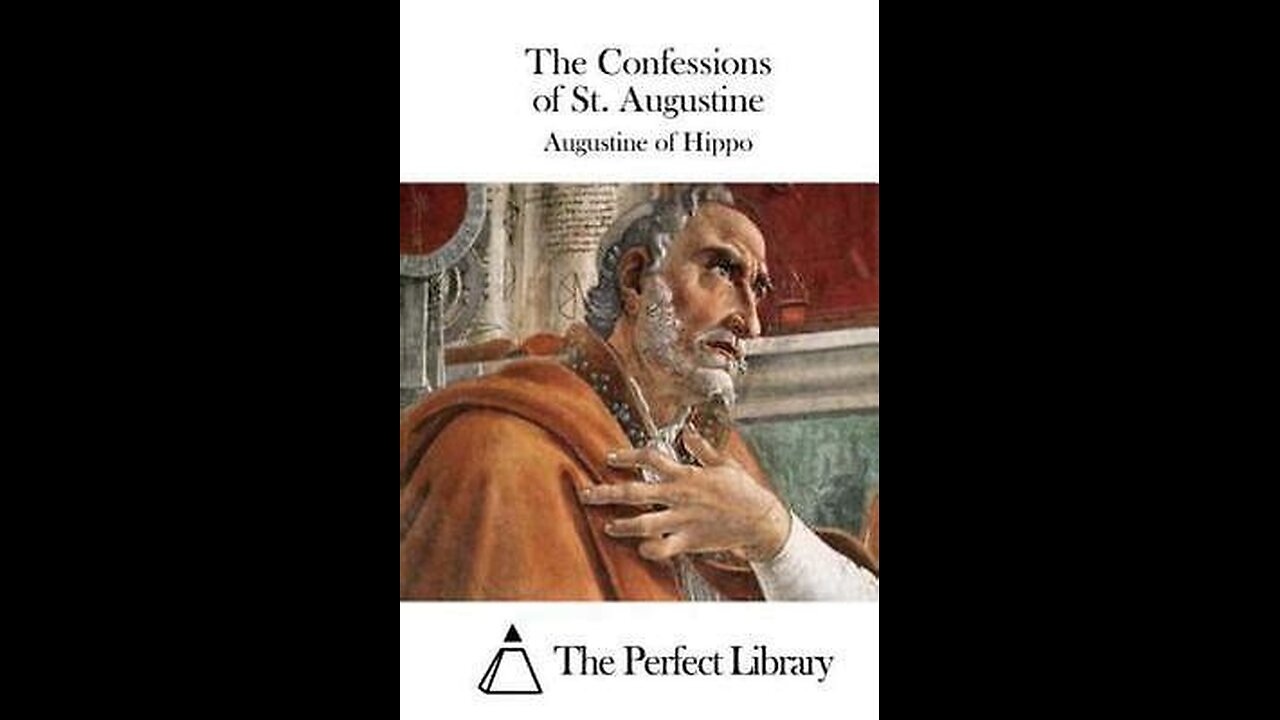Premium Only Content

The Confessions by Augustine of Hippo | Summary and Critique
Buy Here: https://amzn.to/4fHY7C0
"""The Confessions"" is an autobiographical work written by Augustine of Hippo, a prominent Christian theologian and philosopher of the 4th and 5th centuries. It is considered one of the most influential books in Western literature and explores themes of sin, conversion, and the pursuit of truth and spiritual fulfillment.
Augustine's ""Confessions"" is divided into 13 books, which trace his life journey from childhood to his adult conversion to Christianity. In the narrative, Augustine reflects on his past actions, experiences, and inner struggles, seeking to understand the nature of God, the human condition, and his own personal relationship with faith.
Throughout the work, Augustine recounts his early years of indulgence in worldly pleasures and his search for truth and meaning. He details his intellectual pursuits, including his study of philosophy and Manichaeism, a dualistic religion he embraced for a time. Augustine's introspection and philosophical reflections serve as a means of exploring his own moral and spiritual development.
As the narrative progresses, Augustine delves into his personal struggles, including his battle with sexual desires and his eventual conversion to Christianity. He explores the transformative power of God's grace and reflects on the nature of evil and sin. The later books of ""Confessions"" shift focus towards more theological and philosophical discussions, addressing topics such as time, memory, and the nature of God.
""The Confessions"" presents a deep exploration of Augustine's inner thoughts and emotions, and it blends autobiography, philosophy, and theology. The work is characterized by its emotional intensity, philosophical inquiries, and Augustine's profound examination of his own spiritual journey.
Critics generally praise ""The Confessions"" for its literary and philosophical merits, as well as its profound impact on Christian thought. However, there are a few common critiques:
1. Self-Absorption: Some critics argue that Augustine's intense self-reflection can come across as self-absorbed, with a heavy focus on his own experiences and struggles that may alienate some readers.
2. Lack of Objectivity: As an autobiographical work, ""The Confessions"" is inherently subjective, reflecting Augustine's own perspective and theological beliefs. This can limit its ability to provide a more comprehensive or balanced exploration of certain topics.
3. Complex Philosophical Ideas: Augustine engages in intricate philosophical discussions throughout the work, which can be challenging for readers unfamiliar with the philosophical concepts and language of the time.
Despite these critiques, ""The Confessions"" remains a significant and enduring work that offers valuable insights into Augustine's personal journey, as well as broader philosophical and theological questions concerning human nature, morality, and the pursuit of spiritual truth."
-
 LIVE
LIVE
Michael Franzese
48 minutes agoFormer Mob Boss Reveals What It Really Takes To Be a REAL Leader
593 watching -
 1:10:00
1:10:00
HotZone
2 hours ago $2.19 earned🔴 LIVE: Tehran Evacuates: Israel Crushes Iran’s Last Missile Strike and Russia Threatens Trump
10.5K10 -
 LIVE
LIVE
StoneMountain64
1 hour agoBlack Ops 7 NO WallRunning, No Blackout 2 & Warzone Bugs Addressed
456 watching -
 1:39:20
1:39:20
Russell Brand
2 hours ago9/11 – Still Just a Conspiracy Theory in 2025? - SF600
132K23 -
 53:56
53:56
The White House
2 hours agoPress Secretary Karoline Leavitt Briefs Members of the Media, June 19, 2025
18.9K12 -
 45:21
45:21
Sean Unpaved
2 hours agoLakers' New Era, NBA Finals Picks, & Stephen A.'s Memphis Take
16.8K -
 LIVE
LIVE
Cewpins
27 minutes agoRainy Day Gaming🔥high!💨420 !mj🍃Switch 2 !giveaway
64 watching -
 1:02:56
1:02:56
Winston Marshall
3 hours ago“Israel Is Doing The World’s Dirty Work” The Next Great War Begins | Eylon Levy
16.5K10 -
 DVR
DVR
Simply Bitcoin
3 hours ago $0.73 earnedINSIDER EXPOSES Who Is About To Buy 2.8M Bitcoin In 2025! | EP 1270
19.8K2 -
 LIVE
LIVE
LFA TV
17 hours agoLFA TV ALL DAY STREAM - THURSDAY 6/19/25
2,299 watching